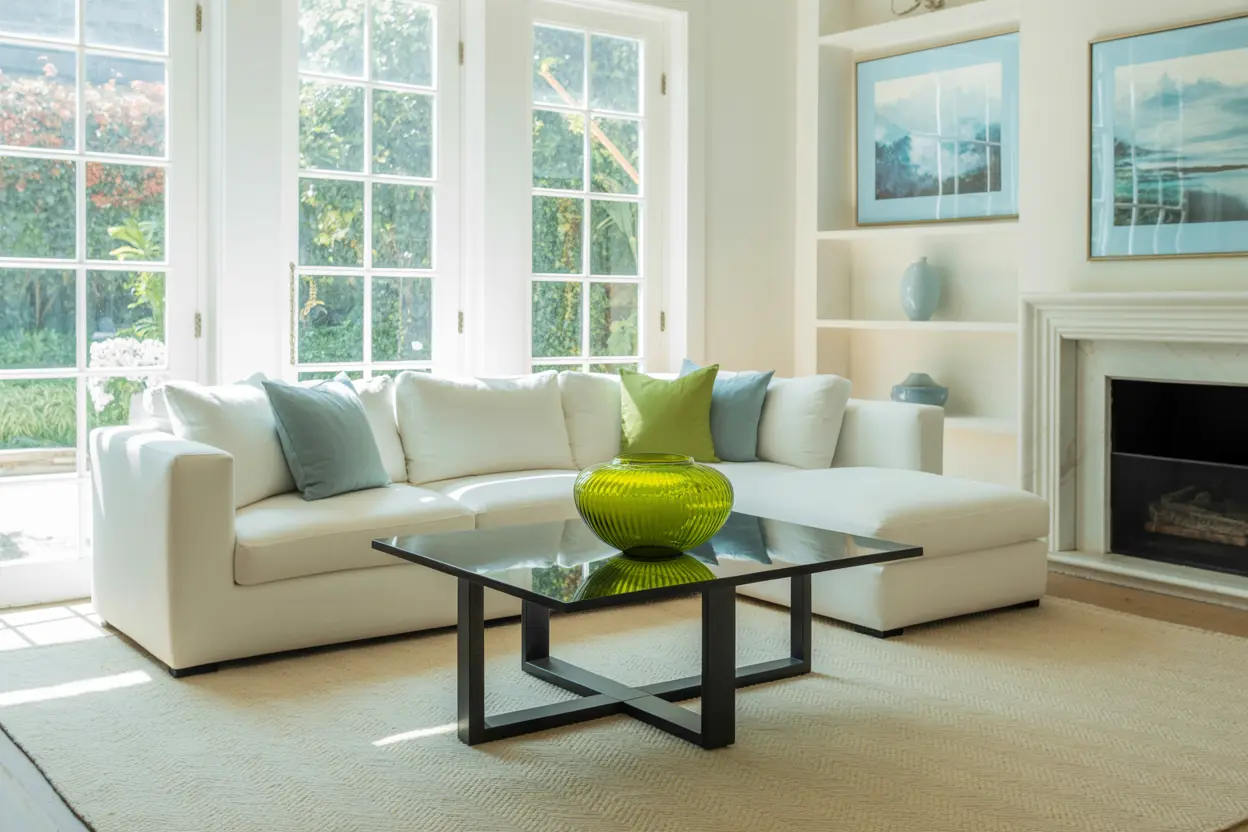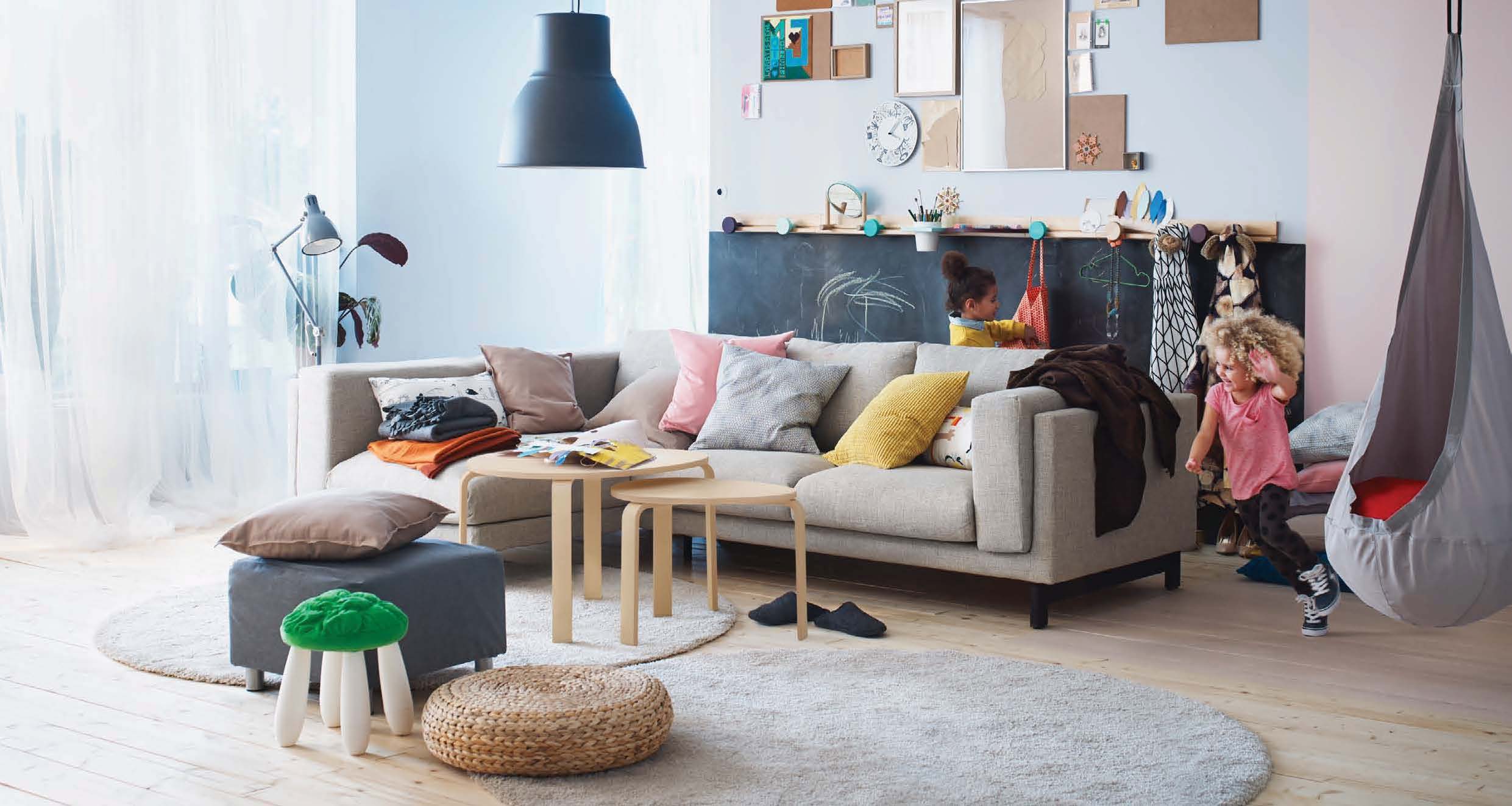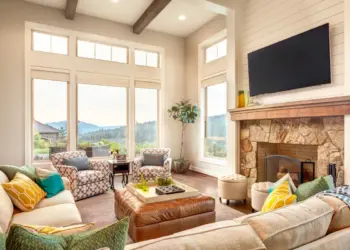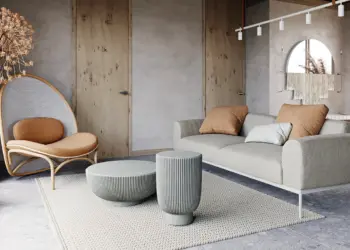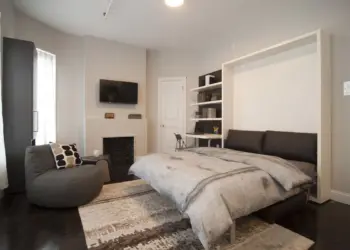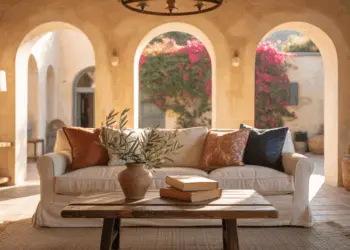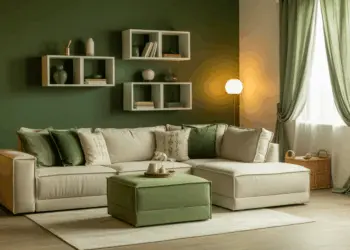Looking for inspiration to furnish and decorate your living room? Here you’ll find inspiration for every style, as well as expert tips on living room decoration to help you make the perfect choice! The living room is not just a space; it’s a reflection of your lifestyle. It’s where you relax, read a book, gather with loved ones, enjoy meals, and find solace.
Therefore, designing your living room requires careful consideration. To achieve a successful living room decoration, you need to address several key aspects: lighting, furniture selection, furniture arrangement, storage solutions, and personalization. The decor you choose should effortlessly convey your mood and personality.
Whether you prefer a modern, vintage, cozy, Scandinavian, industrial, bohemian chic, or Zen style, our collection of inspirations will help you discover the decorating style that resonates with you. Here, we present a variety of ideas and tips to assist you in transforming your living room into a haven of beauty and comfort with thoughtfully curated living room decoration.
Table of Contents
Choose a Theme or Style for Living Room Decoration
Before you start decorating, determine the theme or style you want for your living room decoration. Whether you prefer a contemporary, traditional, rustic, or minimalist style, having a clear vision will guide your choices of furniture, colors, and accessories, ensuring a cohesive and visually appealing living room design.
Contemporary style:
Its contemporary style features clean lines, simple geometric forms, and open spaces. Additionally, the focus is on functionality, with modern materials like glass, metal, and concrete, as well as neutral colors with touches of bright hues. Moreover, the furniture is often elegant and minimalist, while the spaces are uncluttered to create a spacious, airy atmosphere.
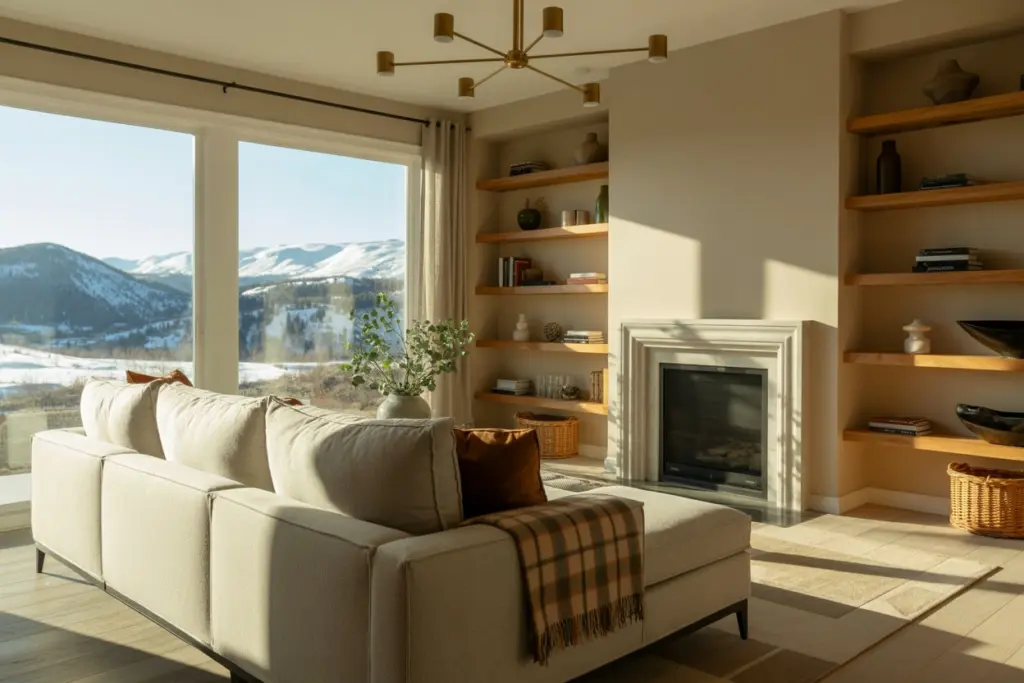
Traditional style:
The traditional style draws inspiration from classic and timeless designs. Furthermore, it features detailed architectural elements, such as moldings, woodwork, and ornamentation. Additionally, the furniture is often elegant and richly decorated, adorned with luxurious fabrics and traditional motifs. Moreover, the colors are generally warm and rich, including shades like burgundy, dark green, and brown.
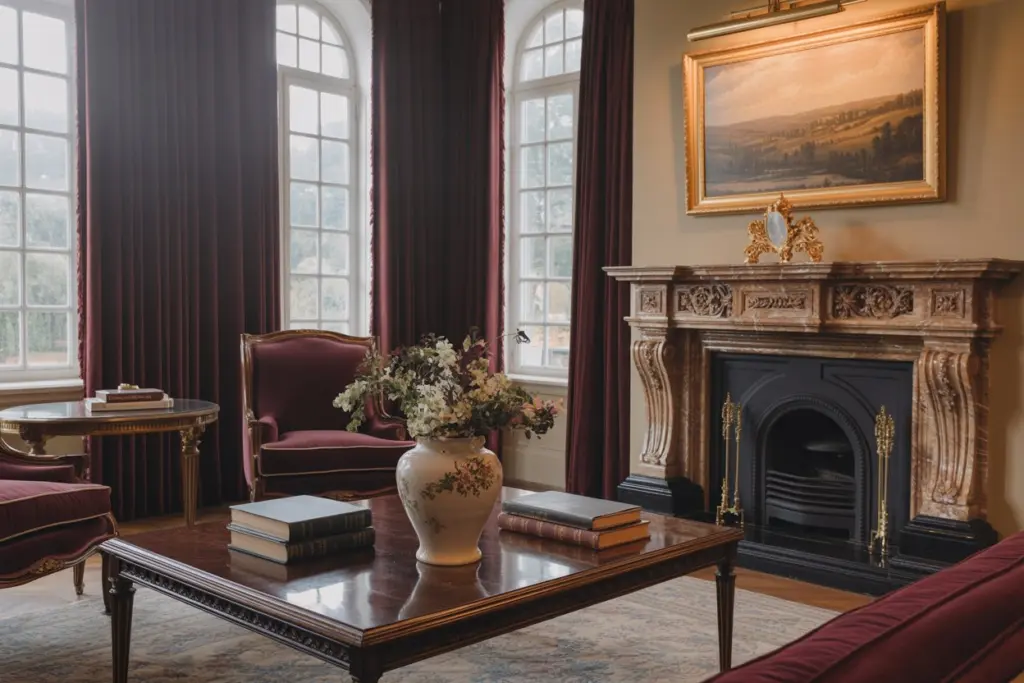
Rustic style:
The rustic style draws inspiration from nature and country living. Additionally, it features natural materials such as raw wood, stone, and textiles made from natural fibers. Moreover, colors are generally earthy and warm, encompassing shades of brown, beige, and green. Furthermore, furniture has a rugged, worn look, characterized by rough textures and distressed finishes. Furthermore, decorative elements often include handcrafted objects and rustic elements.
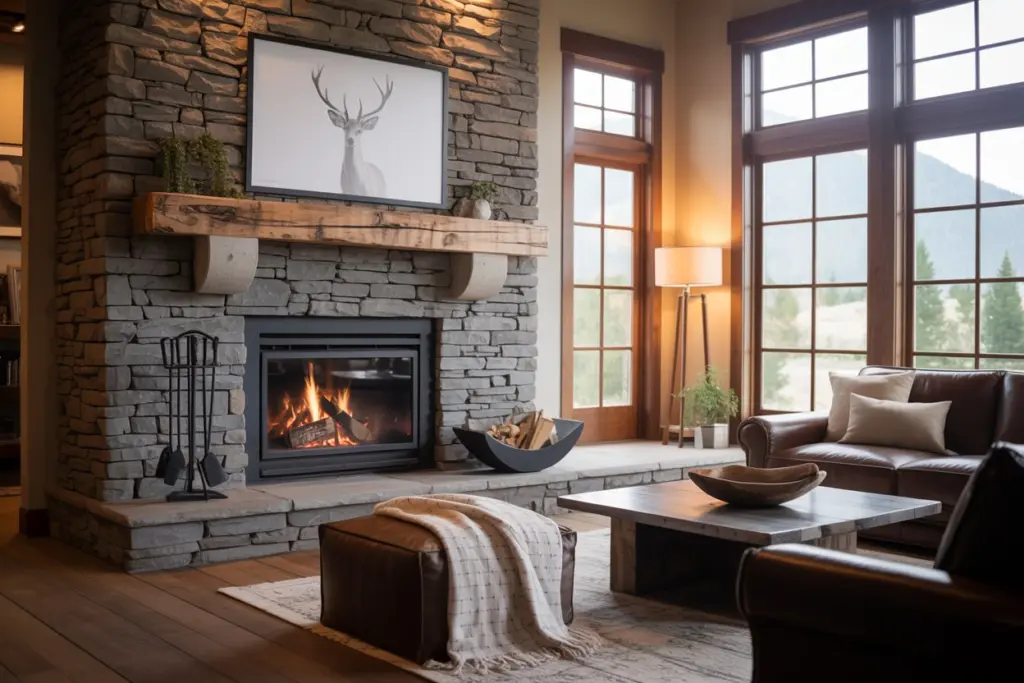
Minimalist style:
The minimalist style embraces simplicity, functionality, and the removal of unnecessary elements. Furthermore, the spaces are clean, characterized by clean lines and simple geometrical forms. Additionally , neutral colors, such as white, gray, and black, often dominate the space, contributing to a calm and serene atmosphere. Moreover, furniture in this style is functional and unadorned, with an emphasis on high-quality materials. It is important to note that in this style, less is more, and the accent is on space, light, and clean forms.
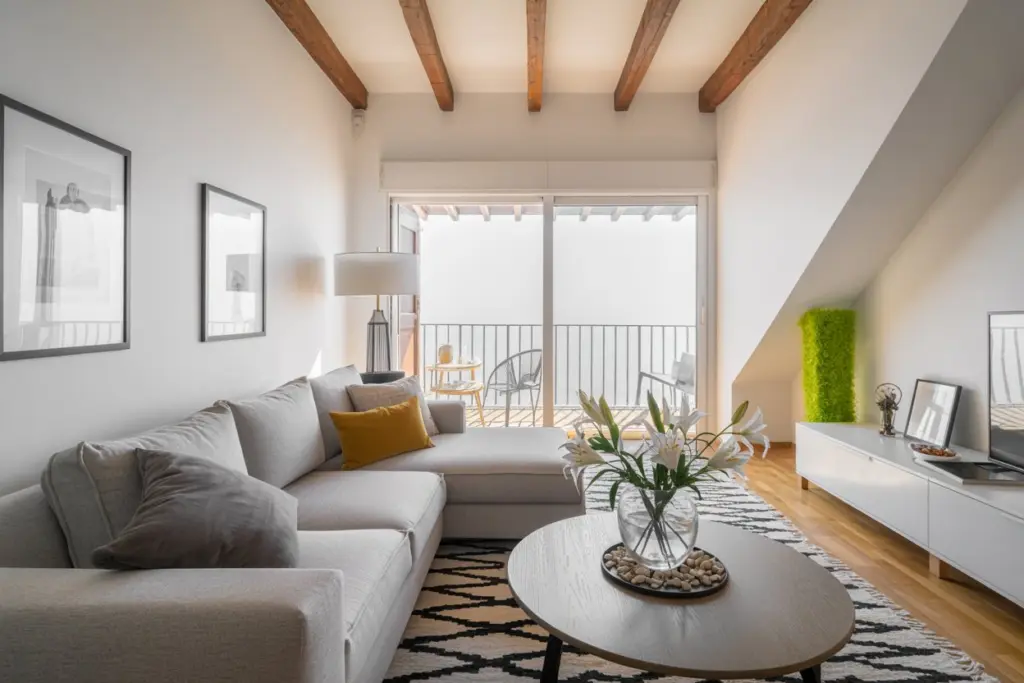
Essential Furniture for Stunning Living Room Decoration
Choose furniture that matches the style you want to create in your living room decoration. Additionally, opt for comfortable, high-quality pieces, such as a spacious sofa, upholstered armchairs, and a functional coffee table. Moreover, when selecting furniture, it’s important to measure your space carefully to choose proportionate pieces that won’t overwhelm the room. To assist you further in choosing and arranging furniture for your living room decoration, here are some additional details to consider:
Living Room Sofa
The sofa is often the centerpiece of the living room. Choose a sofa that matches the size of your space and your comfort needs. opt for a model with a quality upholstered seat and backrest for optimum comfort. Also consider the style of the sofa to match the rest of your living room decor.
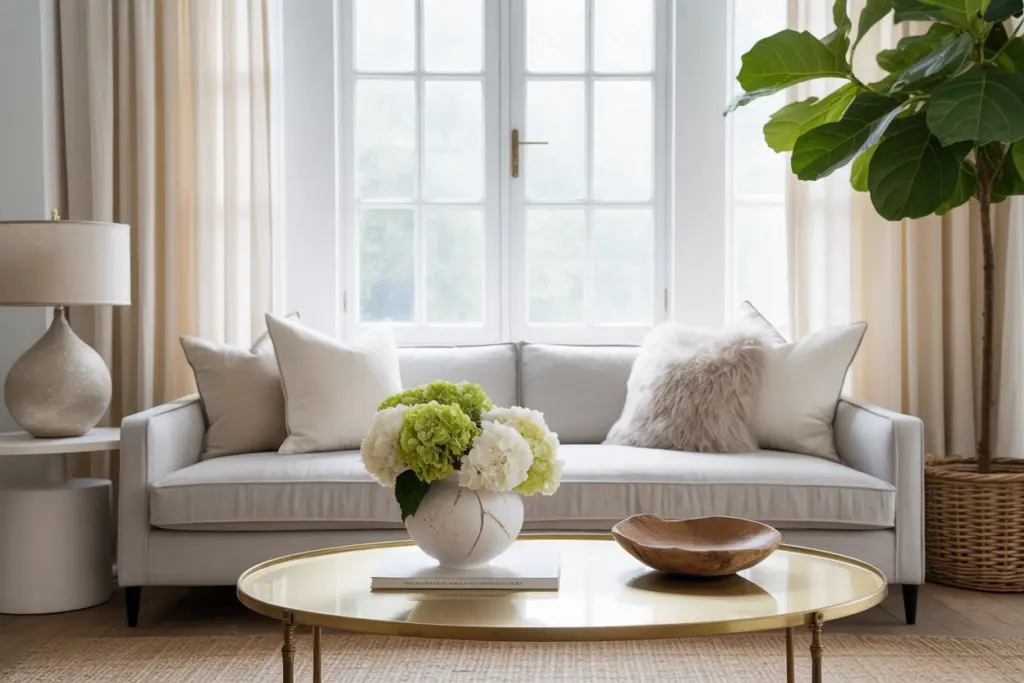
Living Room Armchairs
Armchairs are individual seats that can add comfort and style to your living room. Choose armchairs that match or coordinate with your sofa to create visual harmony. Recliners, armchairs with footrests and accent chairs are options to consider depending on your needs and intended use.
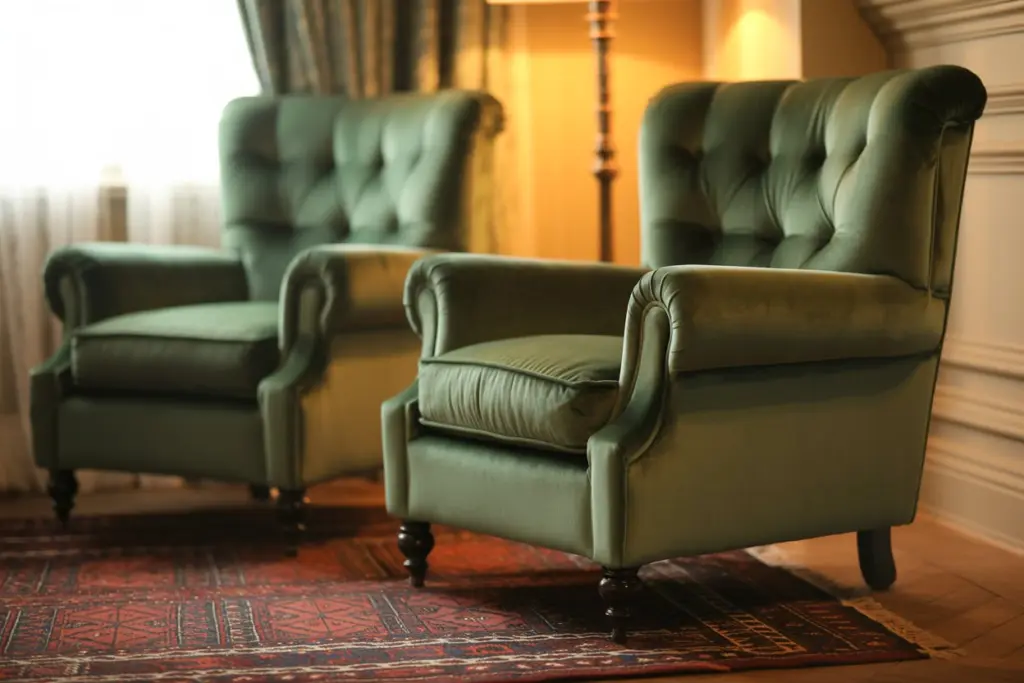
Living Room Tables
Tables in the living room serve a variety of functions, such as supporting drinks, holding remote controls and displaying decorative objects. Choose a coffee table that matches the size of your sofa and living room. You might also consider adding side tables near the seats for added practicality.
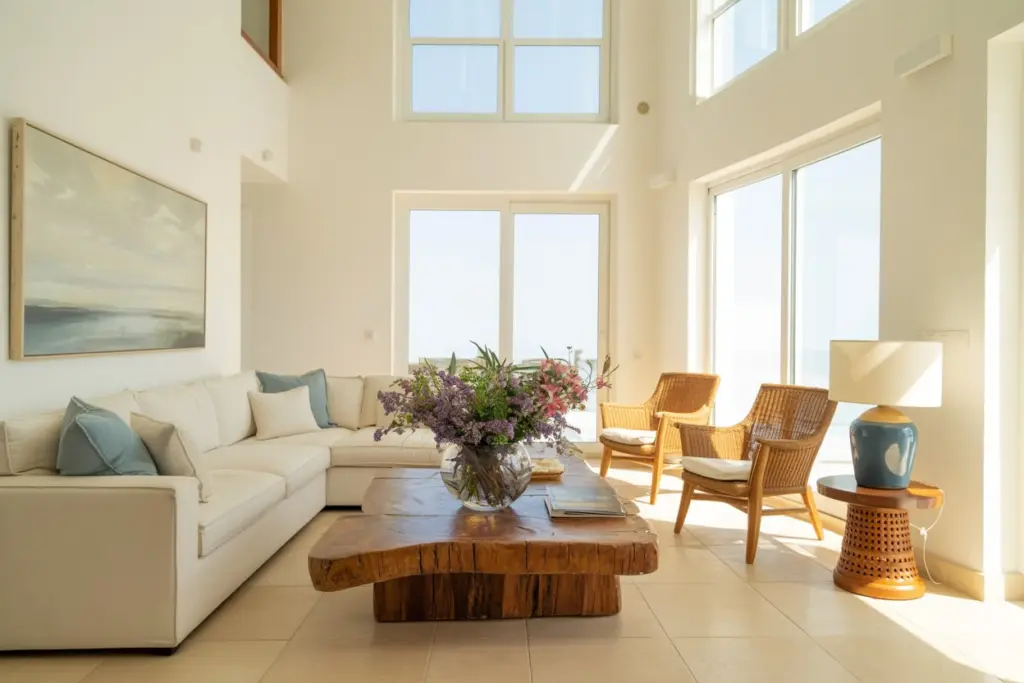
Side tables
Side tables are versatile pieces of furniture that can use to support lamps, books or decorative objects. Choose appropriately sized side tables that harmonize with the rest of the furniture. opt for models with drawers or shelves for extra storage space.
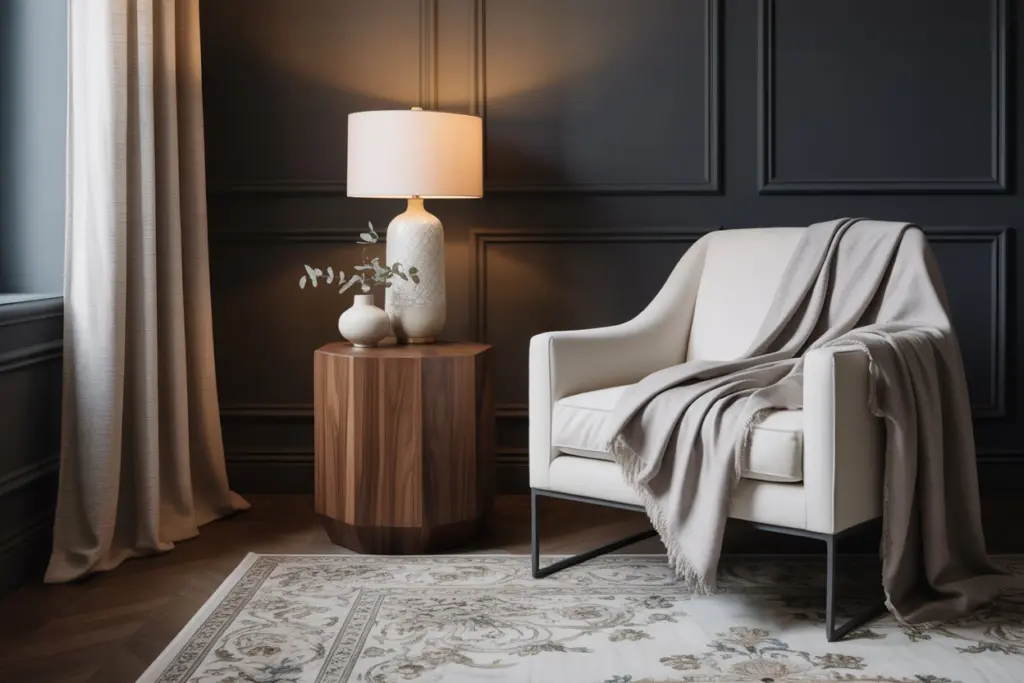
Shelves and storage furniture
Shelving and storage furniture are essential for keeping your living room organized. Choose shelves or bookcases that fit the available space and provide ample storage for your books, decorative objects and media. Storage units such as sideboards, chests of drawers or TV stands can also use to conceal cables and store multimedia accessories.
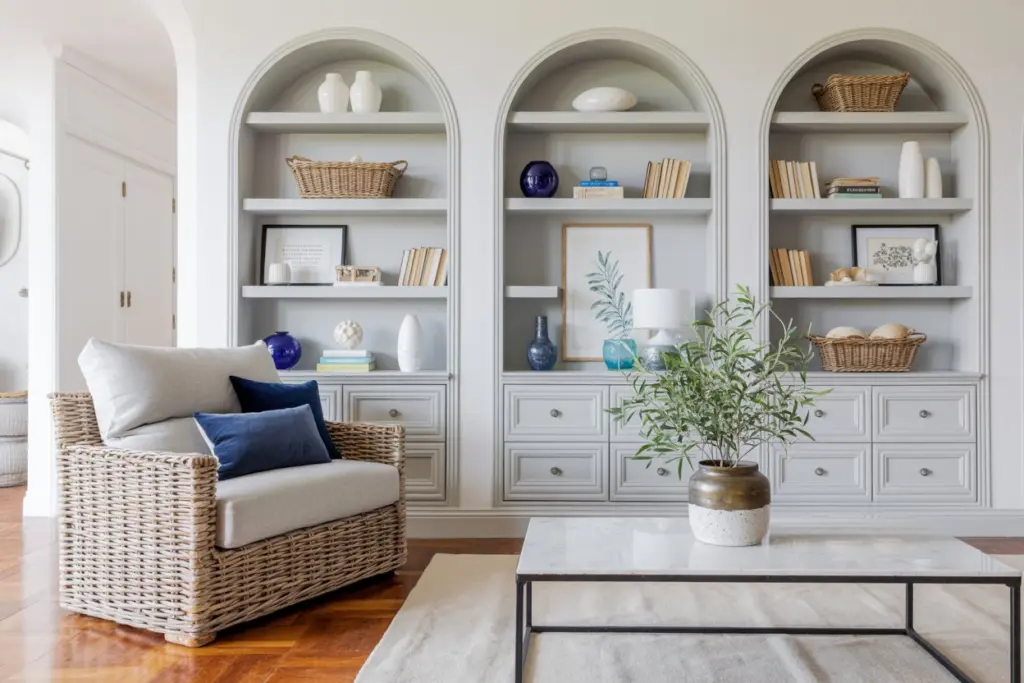
Modular furniture
Modular furniture offers flexibility in the configuration of your living room. Modular sofas, modular sectionals and modular furniture sets let you customize your space to suit your needs and the size of your living room. You can rearrange them to create different configurations and adapt them to different occasions.
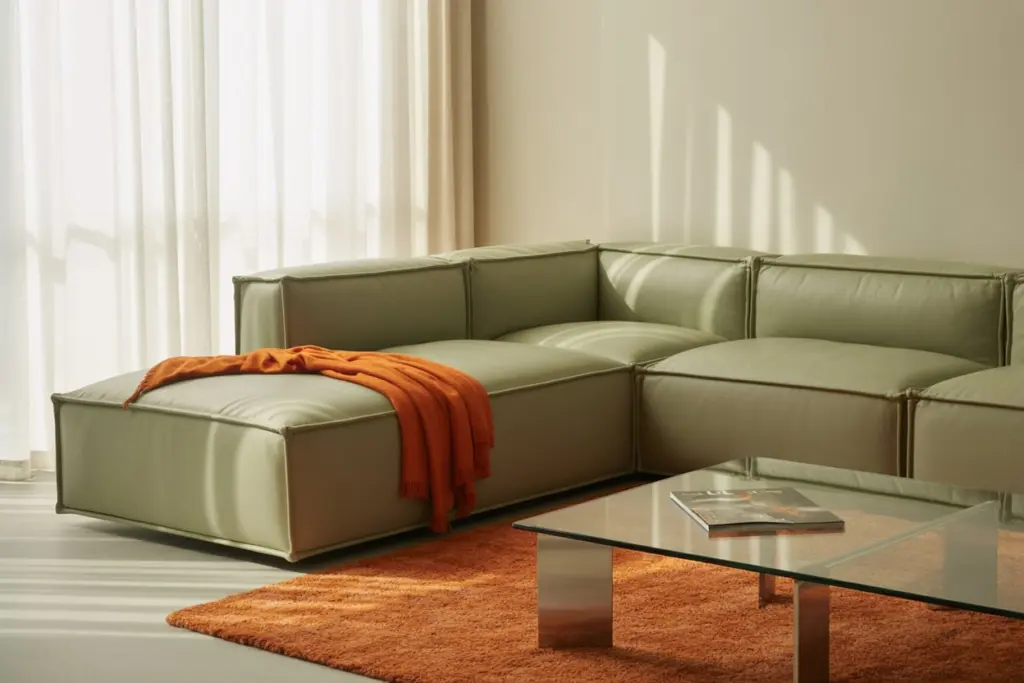
Materials and finishes
The materials and finishes of living room furniture play an important role in the overall aesthetics of the space. Choose high-quality materials that match your preferred style. Wood, leather, fabric and metal are popular options, each bringing a different look and feel to your living room.
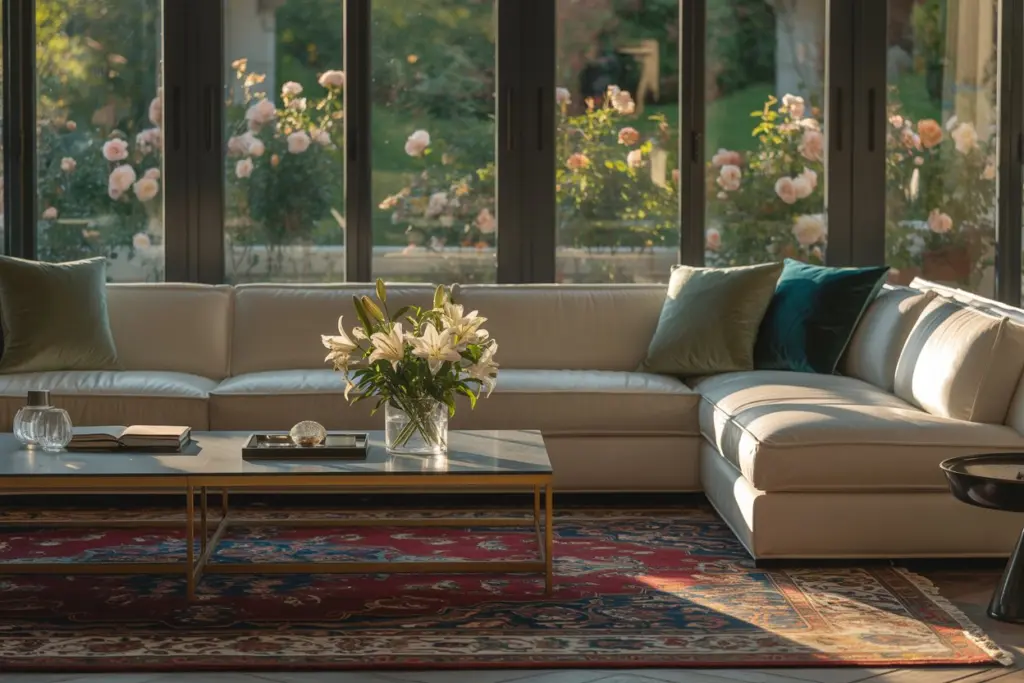
It’s important to strike a balance between comfort, functionality and aesthetics when choosing living room furniture. Consider your family’s needs, the size of your space and your personal style to create a harmonious and practical arrangement that will allow you to enjoy your living room to the full.
How to position your furniture for an amazing living room decoration
Arranging furniture in the various rooms of a home is not always a simple matter.
To avoid misalignment and overload in the room, you must first analyze the architecture and volume of the space. Here are a few points to consider when positioning your living room furniture.
Take this Architectural elements in considiration in your living room decoration
The windows
Avoid obstructing them, but you can place a low-backed sofa with a clearance of at least 10 inches to allow the addition of curtains and to clear the heat source.
Doors
Avoid obstructing doors. If you place a piece of furniture nearby, make sure there’s enough clearance to open the door.
Openings to other rooms
As with doors, you must avoid compromising circulation by placing furniture directly in front of them. However, it is possible to place a sofa or armchair in front of an opening, as long as you can move around it.
The fireplace
This focal point should be prominently displayed, and its importance should not be compromised by the layout of the furniture. It should be your starting point for designing the room and positioning the furniture.
Positioning your furniture in living room decoration
There are many ways to position furniture in the living room. The basic rule is to create an island of conviviality to encourage human groupings.
Parallel positioning
Two sofas are placed face to face (one of the two sofas can be replaced by two armchairs placed side by side).
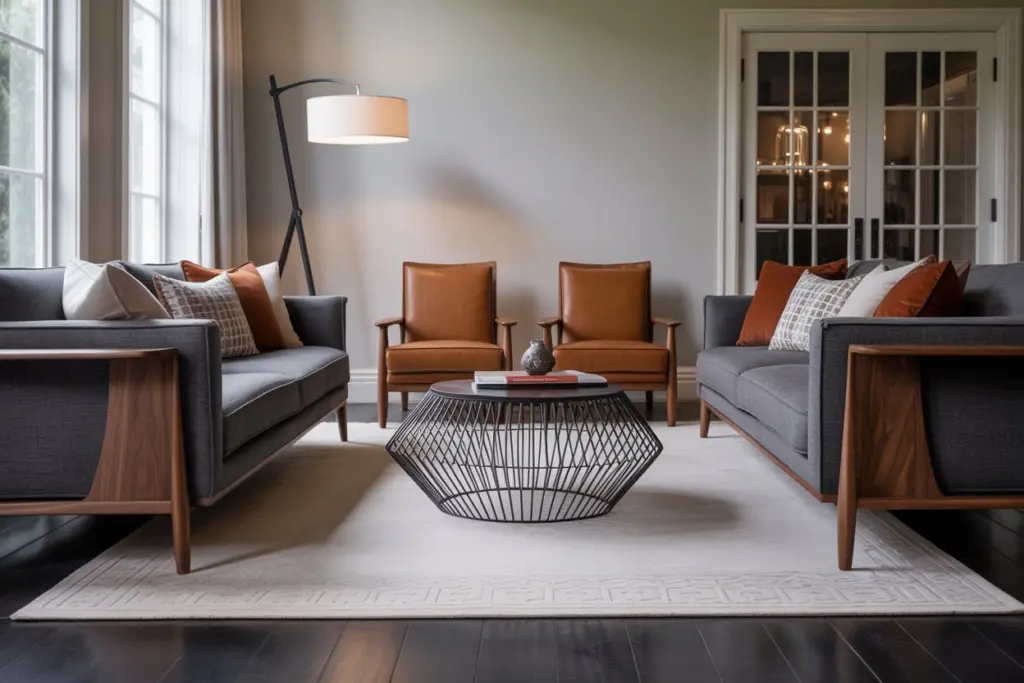
Right-angle positioning
Place the two loveseats at right angles to each other. You can then place the other furniture (tables, chairs or ottoman) to accompany the sofas.
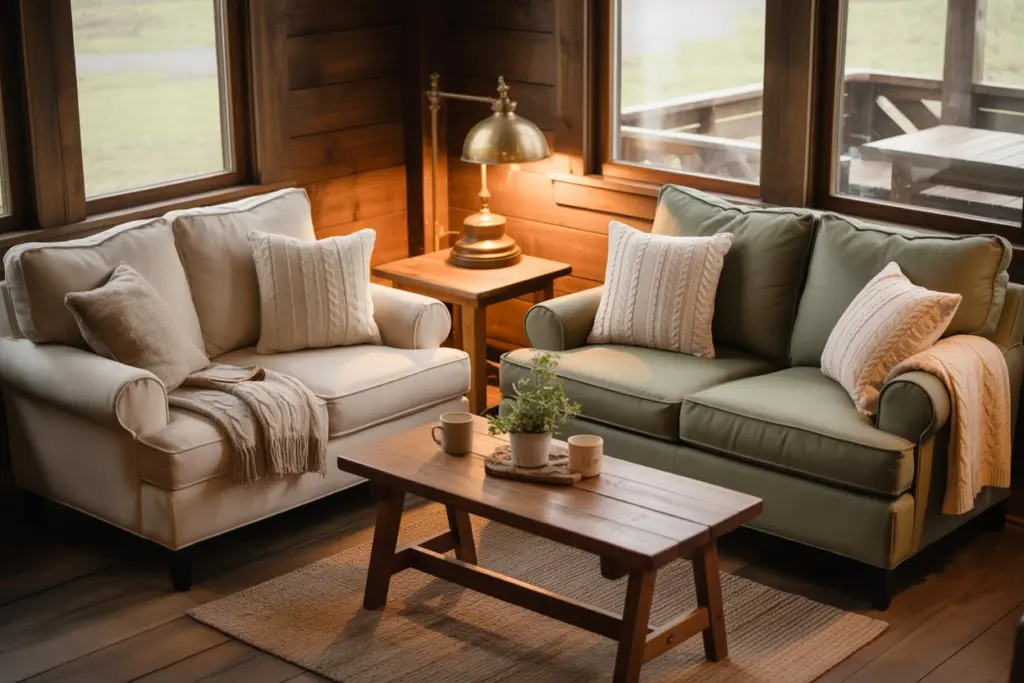
A little tip before buying new furniture
Make a plan to scale on graph paper and place doors, windows, fireplace, and measure furniture or other elements you wish to keep. Take your plan to the furniture retailer. There, you’ll be able to measure the furniture you like and see if it will fit easily into your space.
A piece made over time
To avoid accentuating the effect of length, place the furniture on the wide side of the room. For example, place the large sofa perpendicular to the longest wall in the room.
Alternatively, if the room is very large and long, you can create additional zones, such as a reading corner.
A square room
If the room is small, the furniture will be placed along the wall line (parallel) and grouped at right angles or parallel. If, however, the room is very large, you can move the same grouping so as to position it at an angle in the room.
- We must avoid overloading the room and favor more streamlined layouts.
- Be careful not to line all the furniture up against the walls, leaving a large empty space in the middle. Instead, group your furniture together and clear the walls.
In short, if you’re in the process of planning your spaces and thinking about buying new furniture, take the time to plan your purchases carefully, based on your space and lifestyle.
A living room can sometimes have several functions (relaxation area, computer station, multimedia, etc.). It’s often possible to integrate them, but it’s all a question of planning. To do this, you may need the assistance of a designer who can guide you in drawing up a functional layout plan adapted to your needs.
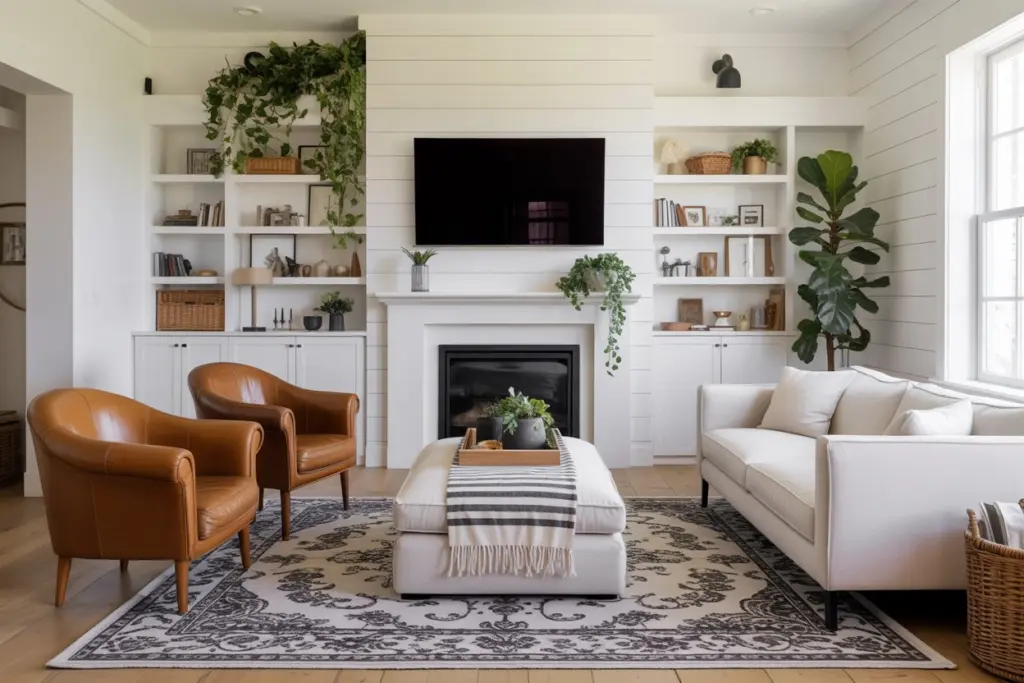
Don’t buy on impulse, plan ahead!
Have you fallen in love with a superb modular sofa? Take the measurements carefully, or ask the retailer to provide them, and then check with your room’s measurements to see if it will fit in easily.
And for those of you who want to rearrange your room with existing furniture, have fun trying out new positions by moving your furniture around. If you can’t come up with anything worthwhile, it’s probably because you’ve got too much. It’s time to make choices and put away the excess.
Colors and textures
Choose a color palette that matches the mood you want to create. Additionally, consider using neutral, soothing tones like white, beige, or gray, as they are versatile and timeless. Furthermore, you can enhance the color scheme by adding touches of bright color with accessories such as cushions, rugs, or artwork. To bring warmth and dimension to the room, it’s recommended to incorporate different textures.
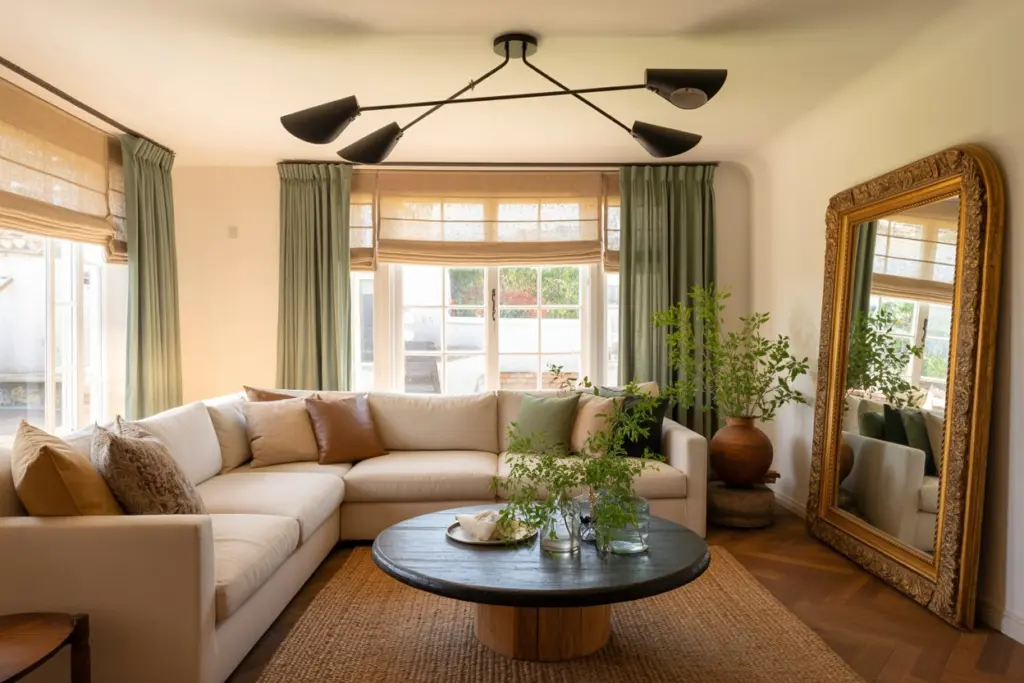
Designer lighting fixtures to brighten up the living room decoration
Apart from their lighting function, lighting fixtures also play a part in living room decoration. Additionally, depending on how they are arranged, lamps add a “plus” to the style of your interior design. It is important to note that lighting fixtures must not only bring light into your room, but also meet the criteria of efficiency and aesthetics.
For instance, floor lamps are particularly popular in living rooms to create a contemporary yet classic ambience. If you enjoy reading in the living room, consider choosing lamps with reading lights. Moreover, when selecting a lamp for the living room, take into account the style of the room and ensure that you choose a shape that blends in with the rest of the decor. To create different moods for special occasions, you can also incorporate additional lights.
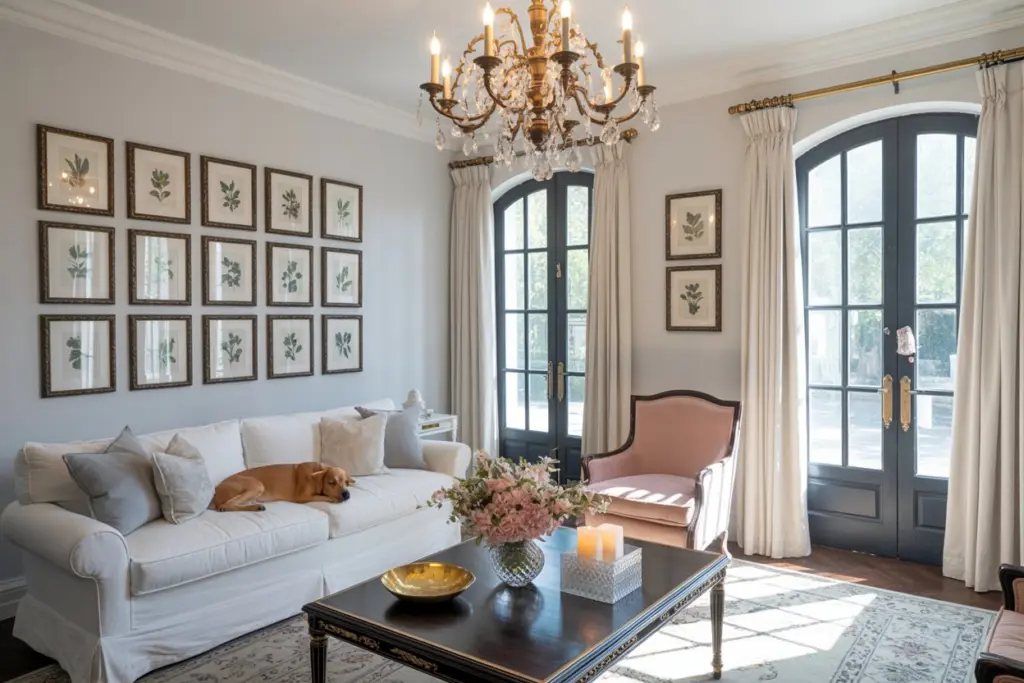
Accessorize with taste
Accessories can add the finishing touch to your living room decoration. Furthermore, arranging decorative elements such as vases, frames, candles, houseplants, and books in a balanced way is crucial. However, be careful not to overload the space and ensure that you maintain visual harmony.
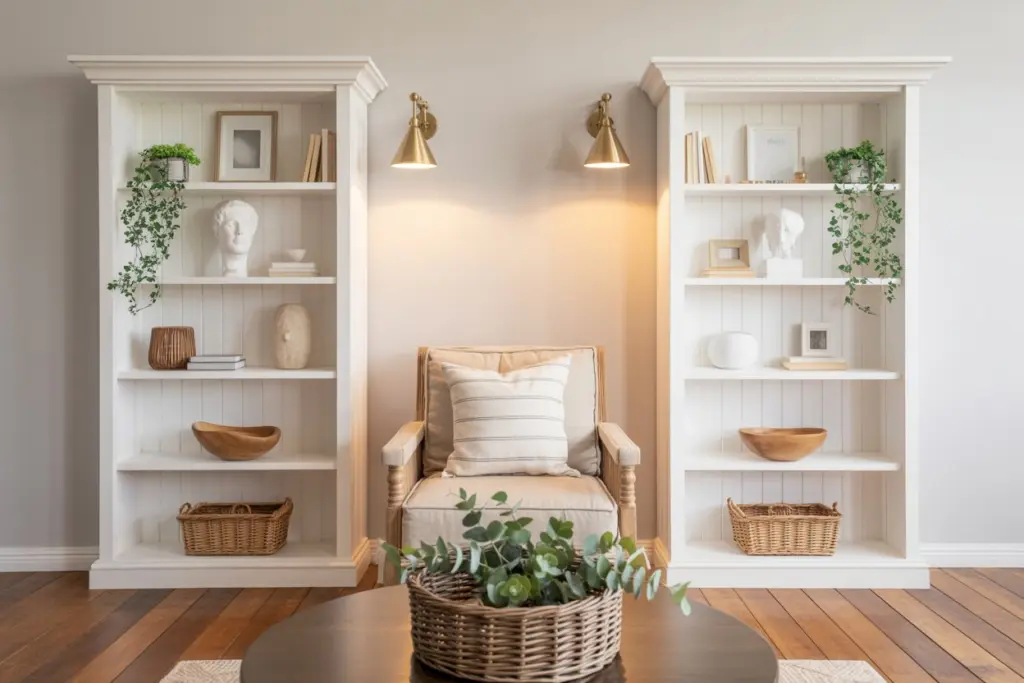
Accessories and wall Dress up the walls
Accessories and wall decor can add the finishing touch to your living room. Additionally, you can add decorative elements such as cushions, plaids, vases, candles, and pictures to personalize your space. Moreover, you have the option to dress up walls with artwork, mirrors, shelves, or wallpaper to add color, character, and dimension to the room. It’s important to maintain a visual balance and avoid overloading the walls with too many decorations.
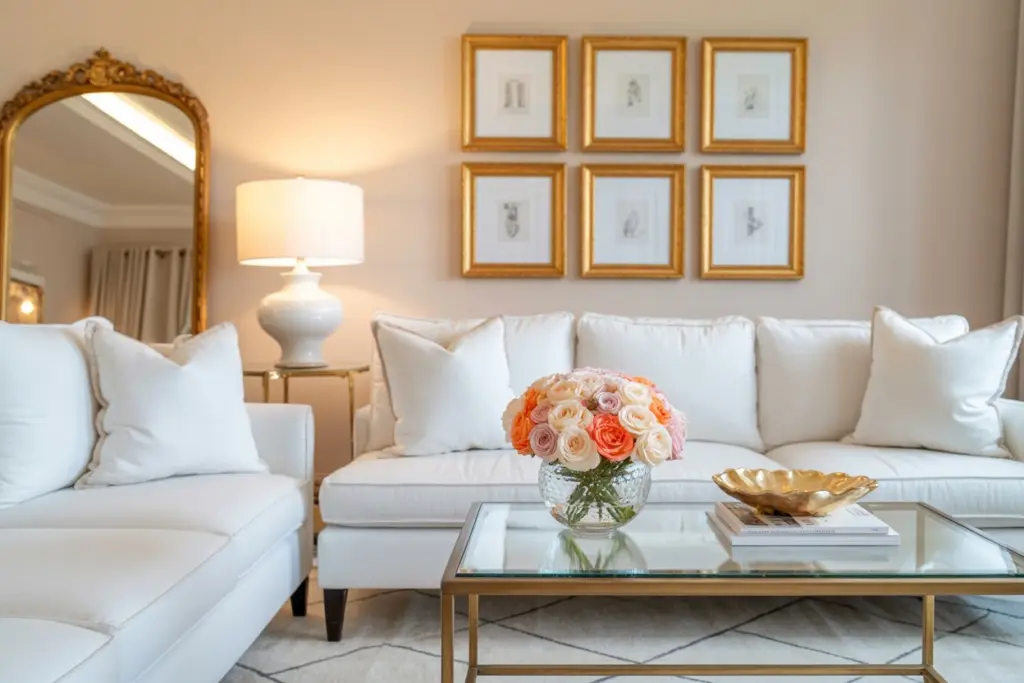
Comfort and functionality
Don’t forget that the living room is a space for relaxation and conviviality. Make sure you have comfortable seating, such as soft sofas and armchairs. Also incorporate clever storage solutions to keep everyday items tidy and organized.
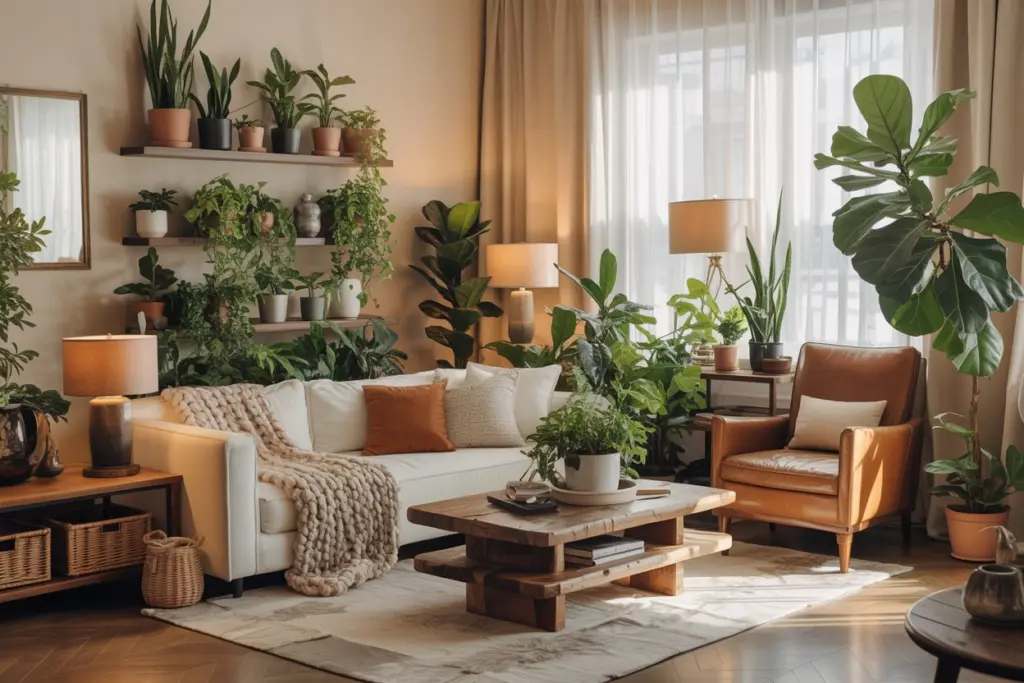
Use indoor plants for living room decoration
Incorporate indoor plants to bring a touch of freshness and life to your living room. Green plants can add color, purify the air and create a soothing ambience. Choose plants suited to your living room lighting and maintain them regularly to keep them healthy.
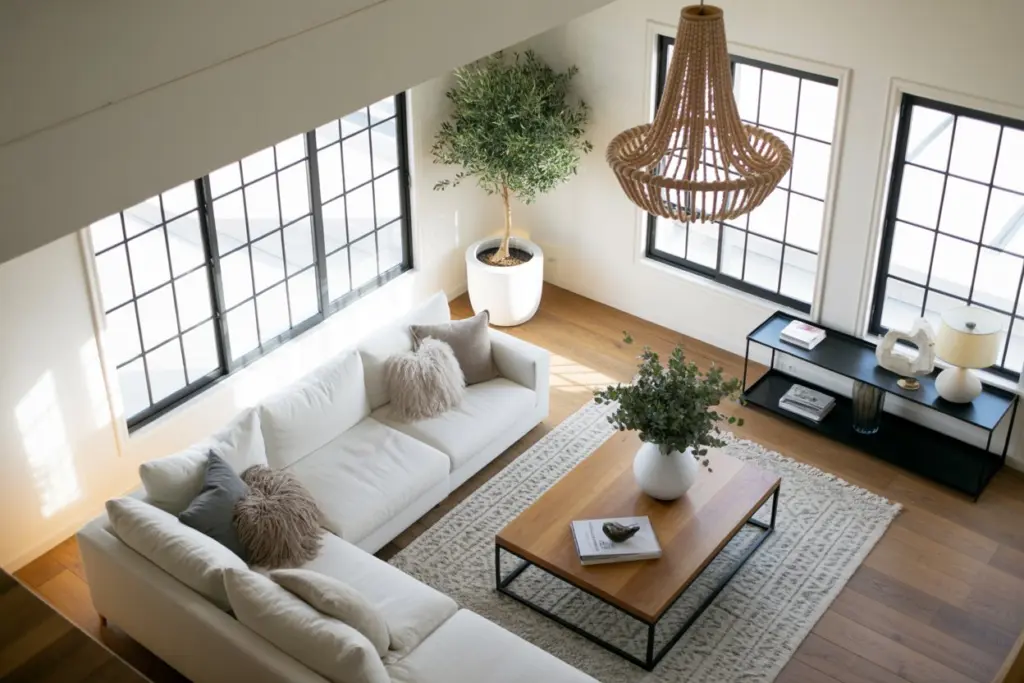
Organization and storage for a well living room decoration
Think of practical storage solutions to keep your living room neat and organized. In addition, you can use shelves, baskets, furniture with built-in storage, or chests to store everyday items such as remote controls, magazines, and toys. By doing so, you will not only maintain order but also create a welcoming space.
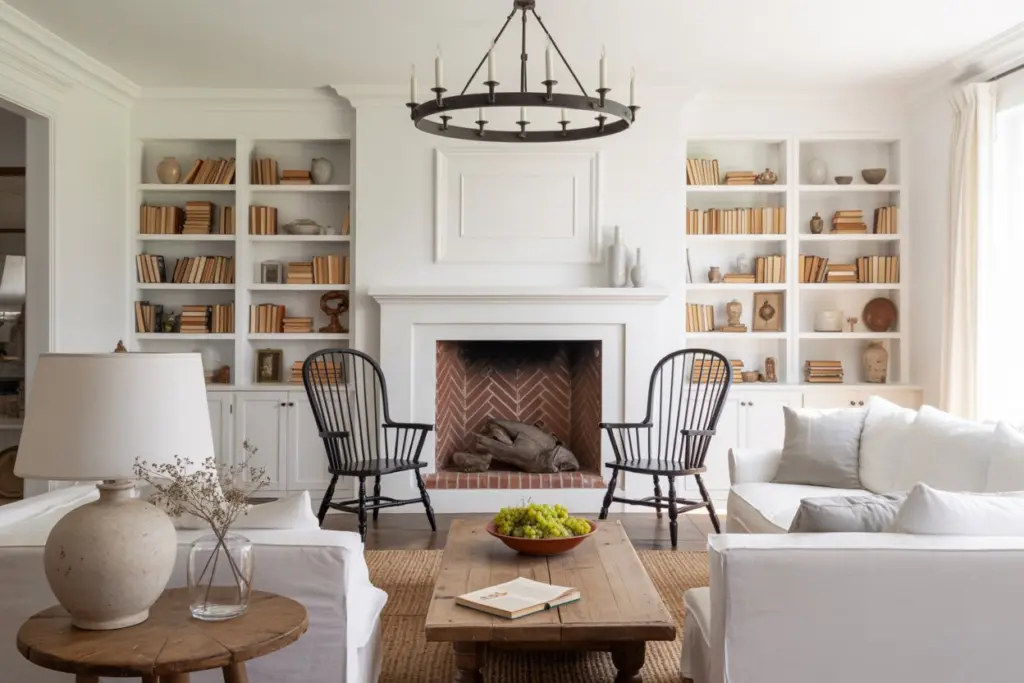
Ultimately, living room decor should reflect your personal style and meet your needs. Moreover, don’t be afraid to experiment and add your own personal touch to create a space that truly reflects you. It should be a place that invites you to relax and spend quality time with your loved ones. Additionally, keep in mind that living room decorating can be done mostly by hand even with a small budget. By investing in a toolbox with a few accessories like a screwdriver or a hammer, you can quickly recoup the cost of the furniture through the savings generated by your own creations.
